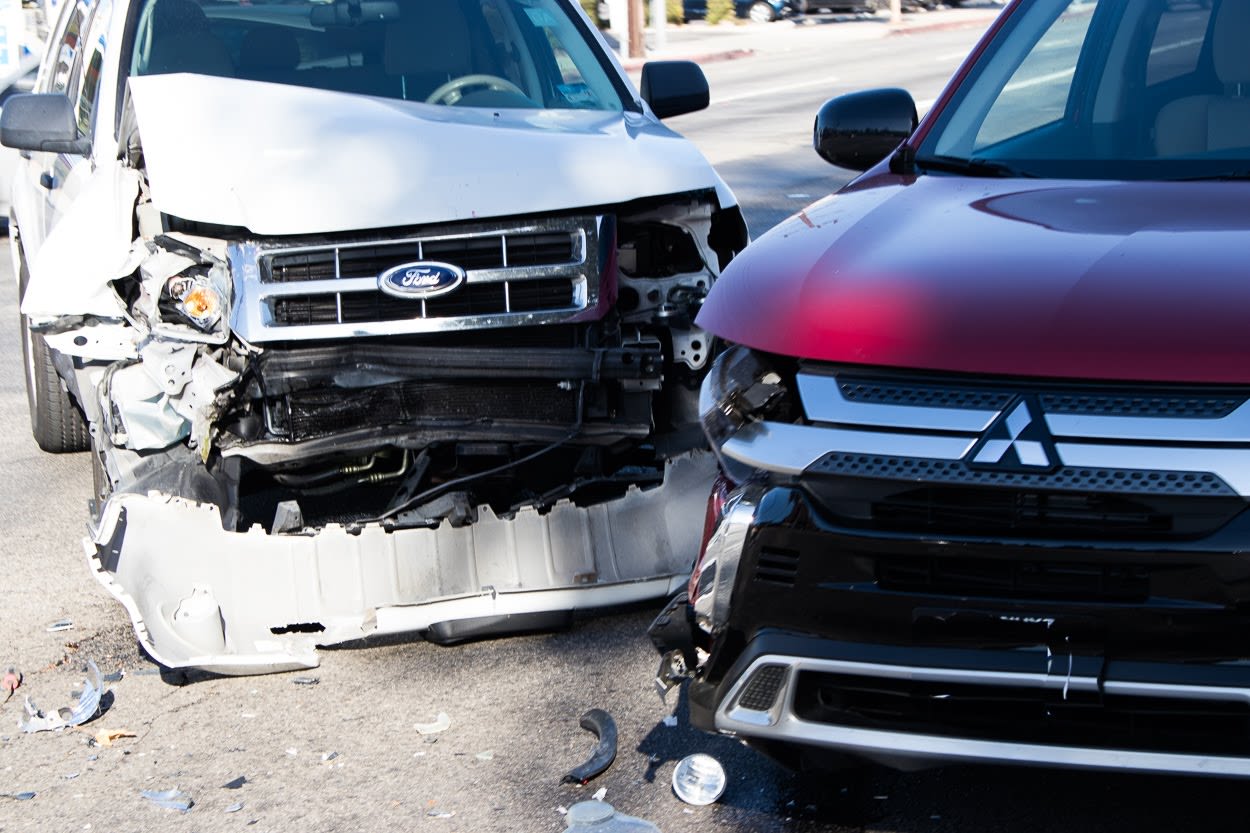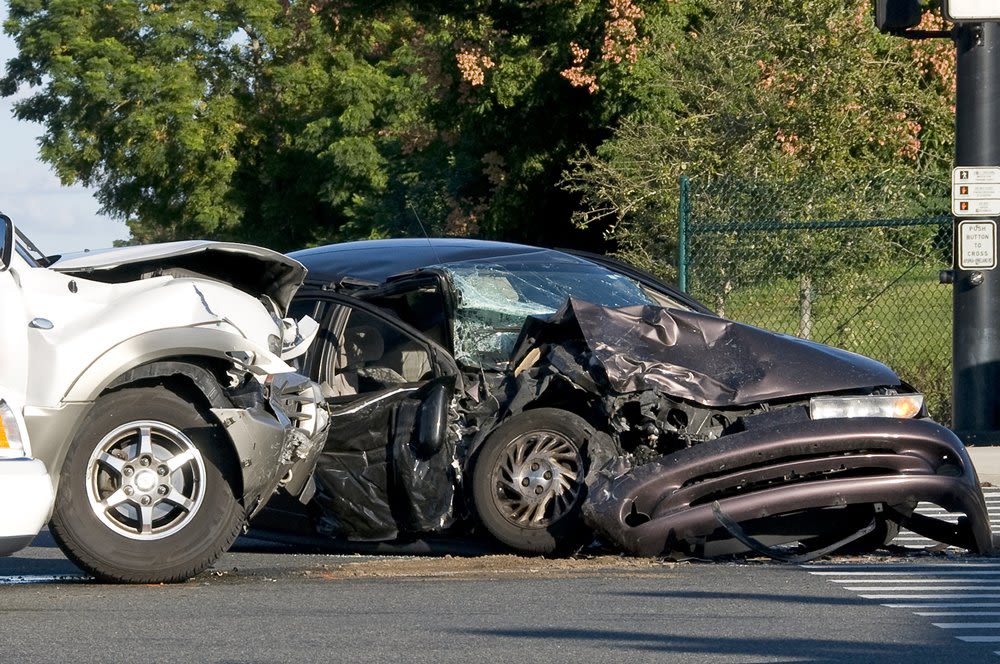
When you're facing a DWI charge, the results of a breath test may seem like indisputable evidence. However, breath tests are not always accurate. Every client deserves a strong defense and a fair shot at justice. If you’ve been arrested for driving while intoxicated, don’t assume that a high breath test result seals your fate.
At Harrell & Paulson in Kaufman and Heath, Texas, we understand the challenges involved in DWI defense and know how to question the reliability of breath test evidence. As DWI attorneys, we're ready to challenge any faulty results that could affect your case. Read on for more information about how breath tests can be challenged in court.
How Breath Tests Work in DWI Cases
Breath tests measure the amount of alcohol in your breath to estimate your blood alcohol concentration (BAC). This estimate is then used by law enforcement to determine if you’re over the legal limit to drive.
The test typically uses a device called a breathalyzer, which captures a breath sample and converts it into a BAC reading. Although widely used, these devices aren’t foolproof and rely on proper calibration, administration, and maintenance.
Reliability of Breath Test Results
Despite being used routinely, breath test machines can produce inaccurate results for a variety of reasons. Factors like device calibration, software errors, or even environmental conditions can throw off the reading.
Courts may accept breath test results as evidence, but they must also be shown to be reliable and valid. If something interferes with that reliability, your DWI attorney can question whether the evidence should be used at all.
Officer Error During Administration
The accuracy of a breath test depends on the officer following precise procedures. If those steps aren’t followed correctly, the results can become unreliable or inadmissible in court.
Some key problems we often uncover in these situations include:
Failure to observe the subject for 15 minutes: Officers are required to monitor the individual to make sure they don’t burp, vomit, or eat anything before the test.
Improper instruction: Not providing clear guidance can lead to insufficient samples or incorrect usage.
Untrained personnel: Only certified individuals should operate the testing device.
Failure to document procedures: Missing records about how the test was performed or when the machine was last serviced.
Ignoring possible medical issues: Conditions like acid reflux or diabetes can alter breath test results if not considered.
When any of these mistakes occur, your DWI attorney can move to have the breath test results thrown out.
Medical Conditions That Can Affect Results
Certain medical conditions may skew breath test readings and lead to false positives. Conditions like GERD (acid reflux), diabetes, and even ketosis from dieting can cause the body to produce substances that mimic alcohol in a breath test.
For example, someone with GERD may have alcohol vapors in their mouth unrelated to their BAC. This can confuse the machine and produce a falsely elevated reading. Your DWI attorney may call on medical experts to testify about how your health condition may have impacted your test.
In addition to health factors, mechanical problems with the device itself can make the evidence unreliable.
Problems With Breathalyzer Calibration
Breathalyzer machines must be calibrated regularly to maintain accuracy. Calibration involves adjusting the device to known standards so that it reads accurately across different levels of alcohol.
When calibration is skipped or done incorrectly, the entire test can be invalid. A DWI attorney can subpoena records to see whether the machine was serviced properly and whether any issues were reported with its use.
Any failure to calibrate or maintain the device can be used as grounds to challenge the breath test in court.
Environmental Factors That Interfere With Testing
Surroundings can also influence the accuracy of a breath test. Fumes from paint, gasoline, or certain chemicals can be present in the environment and affect the machine’s sensor.
In addition, temperature changes and humidity levels can alter the breath sample and impact the final reading. Portable devices used outside are especially vulnerable to environmental interference.
These environmental variables often go unnoticed, but they can seriously undermine the credibility of a breath test result.
The Impact of Residual Mouth Alcohol
Residual mouth alcohol refers to alcohol that remains in the mouth and isn’t a result of deep lung air, which the breathalyzer is supposed to measure. This can be caused by recent drinking, mouthwash, cough syrup, or even dental work that traps fluids.
If residual alcohol is present, it can lead to falsely high readings on a breathalyzer. Officers are trained to account for this risk by waiting a certain period before testing, but they don’t always follow that guideline.
Challenging Chain of Custody and Recordkeeping
Every breath test must be documented thoroughly to verify its validity. This includes information about when the test was taken, by whom, what device was used, and whether the machine had been recently calibrated.
Breaks in the chain of custody or missing documentation can cast doubt on the accuracy of the results. A DWI attorney will review all paperwork and logs to identify gaps that could help weaken the prosecution’s case.
When paperwork is missing or inconsistent, the court may question whether the evidence is trustworthy.
Scientific Challenges to Breath Testing Technology
Defense attorneys sometimes use scientific testimony to challenge the validity of breath testing in general. They can explain how the device works, its limitations, and how easily external variables can compromise the result.
Scientific witnesses can also critique how the device calculates BAC based on average physiological assumptions, which may not apply to everyone equally. This opens the door to doubt about the test’s fairness and reliability.
Such testimony can be especially helpful when paired with personal facts that support the claim of inaccurate results.
Arguing Against Presumptive Guilt
A common mistake is assuming that breath test results automatically mean guilt. While the prosecution may treat these results as definitive, your DWI attorney can show that they’re just one piece of a much larger puzzle.
By introducing inconsistencies, procedural errors, and scientific uncertainty, we can create enough doubt to make the results less persuasive. This approach can shift the momentum in your favor, especially in cases that go to trial.
Even if the breath test seems strong, it may not be the deciding factor when there are other errors in your arrest.
Identifying Fourth Amendment Violations
If police lacked probable cause to stop you in the first place, any evidence gathered after that—including the breath test—could be inadmissible. The Fourth Amendment protects you against unlawful search and seizure, which includes traffic stops and arrests without proper cause.
A DWI attorney will examine the circumstances of your stop to see if your constitutional rights were violated. If so, we may be able to exclude the breath test evidence entirely.
This legal argument can sometimes lead to dismissal before the case ever goes to trial.
Alternative Explanations for High BAC Readings
Sometimes it’s possible to provide an innocent explanation for why the BAC reading appeared higher than it actually was. This may include recent alcohol use without impairment, false positives from environmental factors, or even faulty sample collection.
Your DWI attorney may use expert witnesses, character references, or surveillance footage to support a claim that you weren’t impaired despite a high reading. This helps paint a fuller picture for the judge or jury.
These arguments can be especially helpful in plea negotiations or when seeking reduced charges.
Fighting License Suspension Based on Breath Test Results
In many DWI cases, your license can be suspended just based on the breath test result, even before your case goes to court. You have the right to contest this suspension through an administrative hearing.
During this hearing, a DWI attorney can challenge the evidence used to suspend your license and argue that the test results are flawed or unreliable. Winning this hearing can help you keep your license while your criminal case proceeds.
Taking early action is key to fighting both the criminal and administrative consequences of a DWI.
Call Today for a Consultation
If you've been arrested for DWI and are worried about a breath test result, don’t give up hope. There are many ways to challenge that evidence and protect your rights. At Harrell & Paulson, we serve clients throughout Kaufman, Heath, Forney, Terrell, and Rockwall. To find out how we can help you fight your charges, contact us today for a consultation with an experienced DWI attorney.



